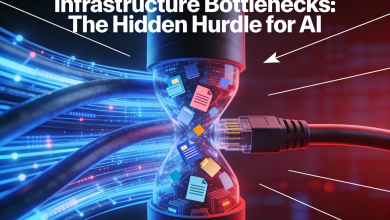
Artificial intelligence (AI) has permeated almost every aspect of modern life in recent years from finance to education and healthcare. But in the field of psychology and mental health, artificial intelligence offers one of the most strong and hopeful applications. Using psychological understanding in conjunction with technology, AI-driven solutions are producing new methods of comprehending, tracking, and advocating emotional well-being. Platforms such as Freudly exemplify this growing trend, providing innovative ways for individuals to connect with mental health resources and self-improvement tools.
Understanding the Intersection of AI and Psychology
The connection between psychology and technology has changed dramatically during the past ten years. Once seen as two distinct fields, what now deeply linked. AI provides psychologists insightful understanding of how the human mind functions, thanks to its ability to detect slight behavioral patterns and process massive datasets. This cooperation improves knowledge of emotional control, cognitive processes, and behavioral change.
For instance, AI-powered sentiment analysis systems can derive user emotions from their language, tone, and online interactions. For both clinicians and people trying to keep an eye on their own mental health, this sort of knowledge is quite useful. Early detection of problems such as anxiety, melancholy, or burnout—conditions often undiscovered until they get serious—is made possible by it.
AI as a Supportive Tool for Mental Health Professionals
Artificial intelligence serves as a supportive partner, not a replacement for human counselors. AI is becoming used more and more by mental health experts to simplify administrative chores, collect patient data, and customise treatment plans. Patient development can be followed by automated systems, which can also advise treatment modifications or remind users of coping strategies—all of which contribute to continuity in care.
Furthermore, artificial intelligence systems can examine treatment transcripts and offer therapists ideas about often seen themes or emotional triggers in sessions. This helps therapists to customize treatments more exactly, which improves therapeutic results. Using artificial intelligence can also help to determine which treatments, including mindfulness or cognitive-behavioral therapy (CBT), are most beneficial for certain personality kinds or emotional states.
The Rise of AI-Powered Mental Wellness Apps
AI-powered applications have become important self-care tools as the need for accessible mental health resources rises. Many of these systems include mood tracking, journaling, guided meditation, and AI chatbots meant to simulate sympathetic dialogues. They provide immediate responses and evidence-based coping techniques, therefore letting users freely express their feelings.
Freudly and other apps show how artificial intelligence can help to make psychological assistance more accessible. Based on user interactions, algorithms recommend exercises, emotional check-ins, or educational content. In areas where financial, cultural, or geographic obstacles could impede access to professional treatment, this democratization of mental health care is especially crucial.
The Ethical Considerations of AI in Psychology
While the benefits are tremendous, adding artificial intelligence into mental health treatment presents major ethical problems. Confidentiality, data security, and emotional genuineness are among the main problems. Users must be totally transparent regarding the gathering and storing of their data; sensitive personal information needs protection against abuse.
Another concern is the chance of overdependence on digital gadgets. Even though artificial intelligence-driven technologies provide assistance, human therapists’ empathy, knowledge, and complex judgment cannot be replaced. One fundamental rule in responsible innovation is ensuring artificial intelligence helps rather than replaces human contact.
Designers and mental health professionals are working together to create systems that preserve ethical integrity, protect data, and foster user-technology confidence. Developing artificial intelligence systems that Rather than diminish, the ultimate goal is to enhance the therapeutic relationship.
The Future of AI in Emotional Wellness
AI in psychology and mental health’s future seems bright. We are moving toward an age of customized mental health where technology might predict emotional demands before they evolve into more serious issues. Wearable devices, for instance, can already predict stress or panic attacks by tracking physiological indicators such heart rate variability and sleep patterns. Combined with artificial intelligence, these systems can alert users in real time and suggest appropriate coping mechanisms.
Artificial intelligence aids therapy using virtual reality (VR) among other areas. Immersive virtual reality driven by smart algorithms is presently used to treat phobias, PTSD, and social anxiety. By setting simulated regulated surroundings, these devices enable people to progressively deal with fears under professional supervision.
Furthermore, AI-based predictive analytics might completely alter our perspective on mental health prevention. Future systems could detect a person at risk and interfere. Early—Changing the Viewpoint from Reactive Care to Proactive Wellness—Rather than Focus only on Treatment.
Conclusion
Incorporating artificial intelligence into psychology and mental health changes how we interpret, treat, and foster the human mind. Technology has the ability to improve emotional well-being access, customization, and efficacy via ongoing innovation and moral consciousness. Although human empathy will always form the core of psychological treatment, AI provides priceless help in expanding mental health solutions to a worldwide scale.
Platforms like Freudly show a vital step toward a more linked and empathetic future as they keep growing, one when mental health resources are accessible to everyone, anywhere, at all times.




